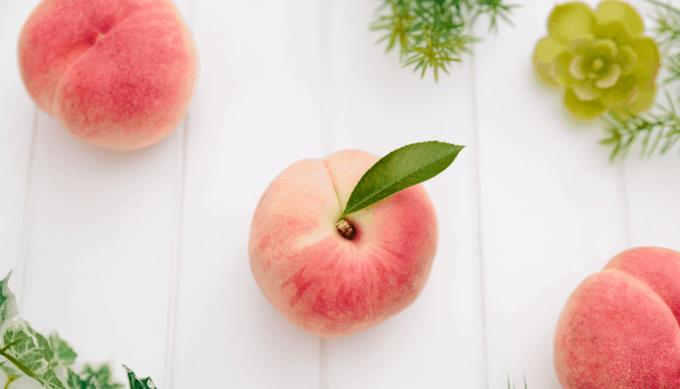It is time to ignore the word of mouth when pregnant women eat peaches will affect the fetus because in fact this fruit brings necessary nutritional values.
If you are wondering if pregnant women can eat peaches, the answer is yes. Thanks to the essential vitamins, minerals, fiber and at the same time being low in fat and calories, peaches are a good fruit for both pregnant women and babies.
However, even though it has been "turned on the green light", the pregnant mother still needs to pay attention to certain issues. In this article, aFamilyToday Health will introduce the unique benefits that peaches bring to pregnant women as well as ways to choose the freshest peaches.
The nutritional value of peaches
To best understand the nutritional value and effects of peaches for pregnant women, refer to the list of nutrients in this fruit below:
Calories: 59kcal
Carbohydrate: 14g
Fat: 0.4g
Fiber: 2.3g
Iron: 0.4 mg
Magnesium: 14 mg
Potassium: 185 mg
Protein: 1.4g
Vitamin: 489 IU
Vitamins: 10 mg.
Benefits when pregnant women eat peaches
Here are some of the health benefits of pregnant women eating peaches during pregnancy:
1. Provide vitamin C
Peaches contain vitamin C with a maximum content of up to 7mg per 100g. Most pregnant women are susceptible to iron deficiency and vitamin C plays a very important role for iron absorption to ensure and minimize the risk of iron deficiency anemia . Vitamin C also contributes to the formation of fetal tissue, supporting the comprehensive development of bones, teeth, blood vessels, cartilage and muscles.
2. Provide potassium
The high potassium content of peaches is especially helpful during pregnancy. Potassium is an essential mineral, which helps in maintaining the optimal fluid balance in the body of both mother and baby. Potassium also assists pregnant women in combating common pregnancy problems like fatigue, cramps and edema. Moreover, pregnant women eat peaches also reduce cases of anxiety, depression and mood changes in pregnant women.
3. Add more fiber
Pregnant women are especially susceptible to gastrointestinal problems during pregnancy, including constipation and indigestion. In such cases, think of fruits, like peaches. 100g of peaches provide 1.5g of fiber, so pregnant women eat peaches to maintain digestion and reduce indigestion cases.
4. Provide folic acid
Folic acid is an essential nutrient for pregnant women during the first 3 months of pregnancy. This nutrient helps babies develop brain and spine as well as prevents neural tube defects or spina bifida.
5. Detoxify the body

Peach is on the list of factors that help to naturally detoxify by cleaning the stomach and intestines along with toxins and waste from other organs, such as the liver, kidneys, and spleen. Moreover, the consumption of peaches also helps your heart to function more efficiently.
6. Supplement beta-carotene
Pregnant women eat peaches to help supplement the body with a healthy amount of beta-carotene. Beta-carotene present in peaches helps strengthen the immune system of pregnant mothers and babies.
7. Weight control
Pregnant mothers gain weight while pregnant too much will easily lead to pregnancy complications. Therefore, you should pay attention, adjust the diet so that it is reasonable. Succulent peaches contain many nutrients but are low in calories will be an ideal suggestion for you in times of sadness.
8. Anti-nausea
Thanks to the mild sour taste, peaches can become a savior in times when nausea, morning sickness during pregnancy bother pregnant mothers. In addition, peach tea or peach juice has the same effect.
How many peaches can pregnant mothers eat per day?
During pregnancy, any type of food should be eaten in moderation and in moderation. According to experts, pregnant women should only eat no more than 500g of peaches for each enjoyment and use with other fruits such as apples, pears, oranges ...
Tell mom how to choose delicious peaches
Peaches should be just right when picked up
Do not choose green peaches because this means that the fruit is unripe
Peach pods should be yellow or cream, mixed with red markings
Do not choose crushed, cracked, or brown colored fruit
Note for pregnant women to eat peaches
According to Oriental medicine, peaches are hot, cause heat to the body and can cause you some bleeding problems if you miss eating too much.
The hairs on the peel can cause throat irritation or even allergies. Therefore, pregnant mothers should clean these hairs and peel them before eating.
You should limit enjoyment of this fruit if you are diagnosed with gestational diabetes.
Due to being rich in folic acid, pregnant women eat peaches a lot, which can increase the level of folic acid in the body, causing cramps, skin rashes, and nausea.
Peaches are a wonderful fruit to enjoy during pregnancy, and the nutritional benefits they bring will be good for both mother and baby. However, you still need to be cautious and attentive while choosing peaches, preferring to choose peaches that are clearly sourced from reputable places like supermarkets or organically grown peaches.












